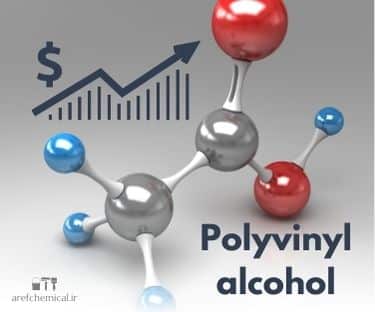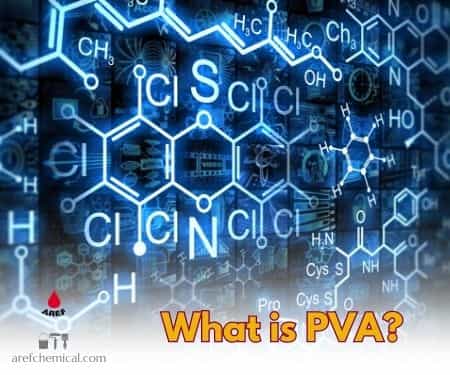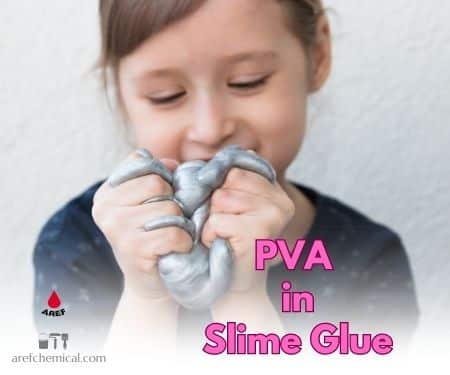Polyvinyl Alcohol Price
Polyvinyl alcohol Price, PVA Price News
Polyvinyl alcohol price;
PVA is an important resin in the industry and has different applications in different industries. This widely used product has continuously decreased in the last 14 months from the price of $4300 per ton to the price of $1600 per ton.
But now, after 14 consecutive months of decline, last week the polyvinyl alcohol price increased by $400 per ton. According to the speculations of the experts, the upward trend of the PVA price will continue until reaching the balance of around $2400 to $2900 per ton.
Polyvinyl alcohol is used in various industries, including paint and glue industries, slime production, cosmetics and health products, etc. This product is completely imported in Iran and the producers supply all their needs from other countries.
What is polyvinyl alcohol?
PVA is a water-soluble synthetic polymer. It is made by hydrolyzing a substance called polyvinyl acetate, which involves replacing acetate groups with hydroxyl groups. The resulting material has a linear structure and is usually white or colorless.
this material has a wide range of applications due to its unique properties. This property leads to film formation, high tensile strength, and flexibility. Also, polyvinyl alcohol is biodegradable and non-toxic and is safe for various uses.
PVA Applications
Some common uses of polyvinyl alcohol are:
- Adhesive: It is used as an adhesive in various industries including woodworking, paper packaging, and textiles.
- Textiles: PVA fibers are used in the textile industry to make wrinkle-resistant fabrics.
- Paper: This material is added to paper coatings to improve strength, smoothness, and printability.
- Pharmaceuticals: This chemical material is used as a binder in tablet formulations to hold the active ingredients together.
- Specialized skin and hair products: Polyvinyl alcohol can be seen in cosmetics and personal care products such as hair spray, shampoo, and lotion due to its film-forming properties.
- Packaging materials: PVA films are used as water-soluble packaging materials for single-use items such as detergent pods or agricultural chemicals.
- Construction industry: PVA-based adhesives are used to bond tiles, wallpaper, and other building materials.
- Emulsifiers: This material can act as an emulsifier or stabilizer in various food products such as ice cream or salad dressing.
In general, polyvinyl alcohol has become a valuable material in various industries due to its unique composition, properties, and versatility.
Is polyvinyl alcohol also used in the food industry?
PVA is used in the food industry. PVA is commonly used as a thickener, stabilizer (emulsifier), and film-forming agent in various food products. This product can be found in foods such as ice cream, yogurt, sauce, and other cooked foods.
The presence of PVA helps to improve the texture, prevent syneresis (separation of liquid from the gel), and increase the shelf life of these foods.
How is polyvinyl alcohol produced?
This chemical material is usually produced through the hydrolysis of polyvinyl acetate. The production process includes the following steps:
- Polymerization: Vinyl acetate monomers are polymerized using a catalyst, such as a peroxide initiator, to form polyvinyl acetate.
- Hydrolysis: Polyvinyl acetate then undergoes hydrolysis, where it reacts with water in the presence of an alkaline catalyst, such as sodium hydroxide or Methanolamine. This hydrolysis reaction breaks the ester bonds in polyvinyl acetate and replaces them with alcohol groups, resulting in the formation of polyvinyl alcohol.
- Filtration and washing: After hydrolysis, the resulting polyvinyl alcohol solution is filtered to remove any impurities or unreacted substances. Then it is washed several times with water to remove the remaining catalysts and side materials.
- Drying: The washed polyvinyl alcohol solution is usually concentrated by evaporation under reduced pressure to increase its solids content. It is then dried using methods such as spray or freeze drying to obtain a PVA powder form.
The specific conditions and parameters used in each step may vary depending on the properties and intended applications of the final PVA product.
What is the use of PVA in the production of slime glue?
Polyvinyl alcohol is usually used in the production of slime glue due to its adhesive and thickening properties. Some of the special uses of PVA in the production of this type of glue are as follows:
- Glue: It acts as a binder and allows the different components of the slime glue to stick together. This process forms a sticky and stretchy tissue and gives the slime elasticity.
- Viscosity control: Polyvinyl alcohol helps to control the viscosity or thickness of the mud glue. By adjusting the concentration of PVA, manufacturers can create slimes with different levels of stickiness and elasticity.
- Non-toxicity: It is generally suitable for securing slime glue that comes into direct contact with the skin or is used by children.
- Stability: PVA helps stabilize mixtures and prevents materials from separating or settling over time. This material guarantees the consistency and properties of slime for a long time.
- Ease of use: This material is water soluble and easily mixed with other materials and cleaned after use.
In general, polyvinyl alcohol plays an important role in creating the adhesive, thickening, stability, and safety properties required to produce high-quality slime glue.
Aref Chemical is known as one of the largest producers of quality slime glue in Iran.
Contact us to inquire about the polyvinyl alcohol price and other raw materials needed in the adhesive and paint industry. Find out about the polyvinyl alcohol price and news related to this product by following our page on Instagram.






10 Responses
Wow. God help us
great explain about PVA price
Thanks
The description of polyvinyl alcohol was excellent
so good thanks
https://behdama.com/%d9%85%d8%b4%d8%b9%d9%84-%d8%b5%d9%86%d8%b9%d8%aa%db%8c/
great
https://tavatranslation.com/%da%a9%d8%a7%d8%b1-%d8%af%d8%b1-%d9%81%d8%b1%d8%a7%d9%86%d8%b3%d9%87/
good luck
https://daroosf.com/%D9%85%DA%A9%D9%85%D9%84-%D8%A7%D9%86%D8%B1%DA%98%DB%8C-%D8%B2%D8%A7/
oh my God
https://qomtamirat.com/
yes exactly
https://arefchemical.ir/%d8%a7%d9%86%d9%88%d8%a7%d8%b9-%d8%b1%d9%86%da%af-%d8%b3%d8%a7%d8%ae%d8%aa%d9%85%d8%a7%d9%86%db%8c/
i agree with you
https://behdama.com/%d8%b3%d8%ae%d8%aa%db%8c-%da%af%db%8c%d8%b1-%d8%a2%d8%a8/